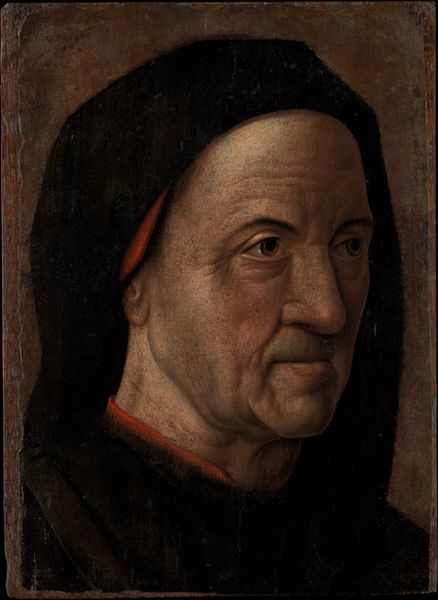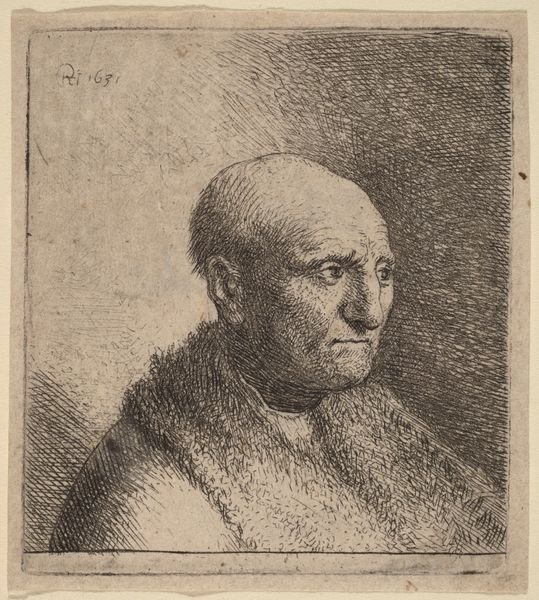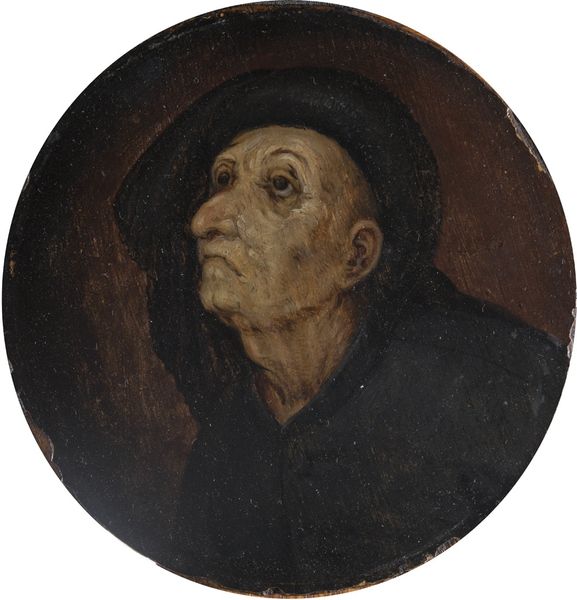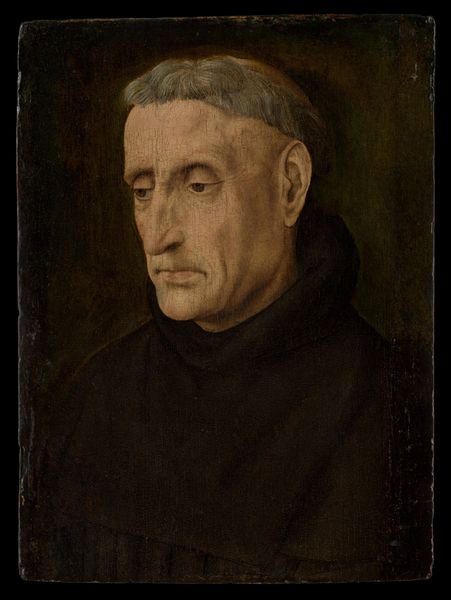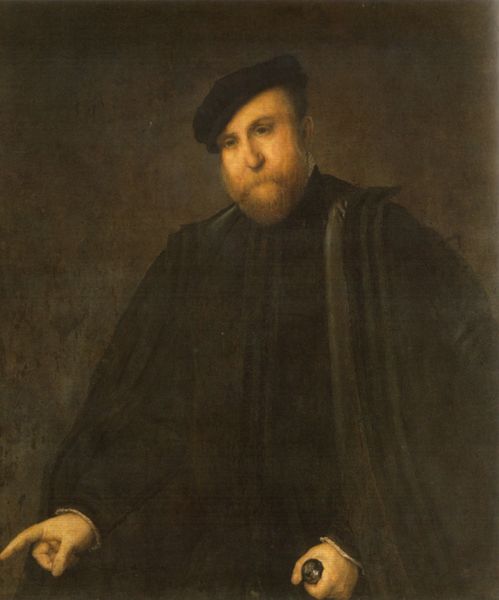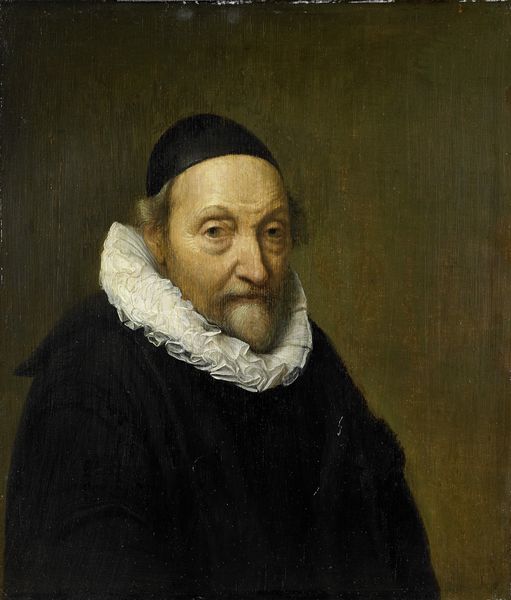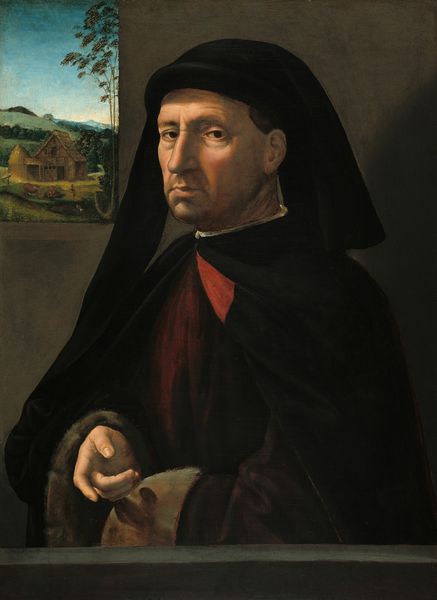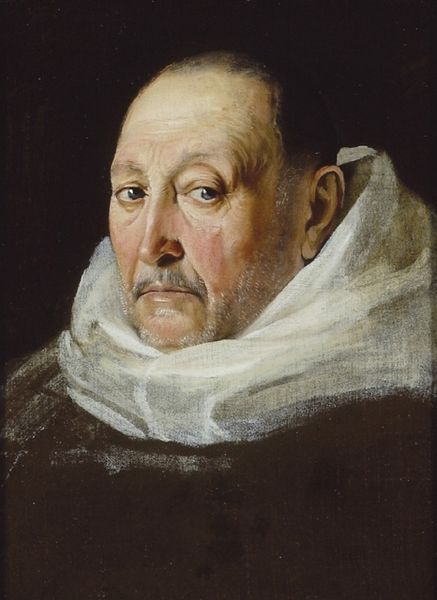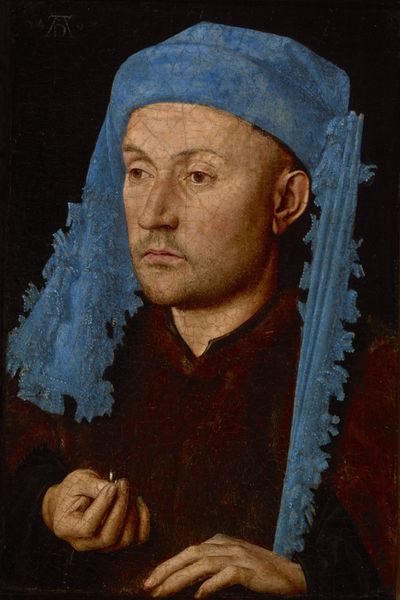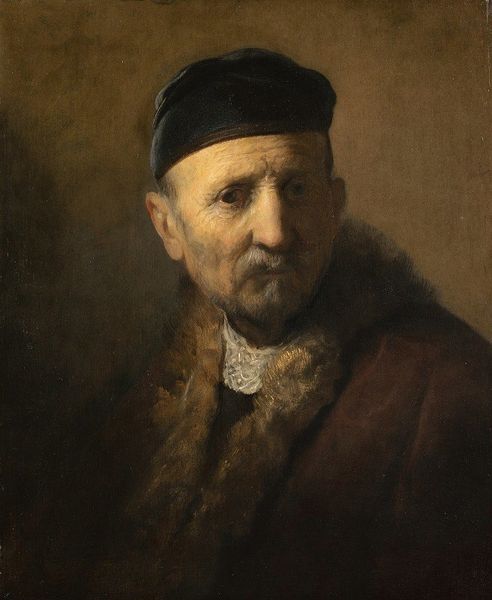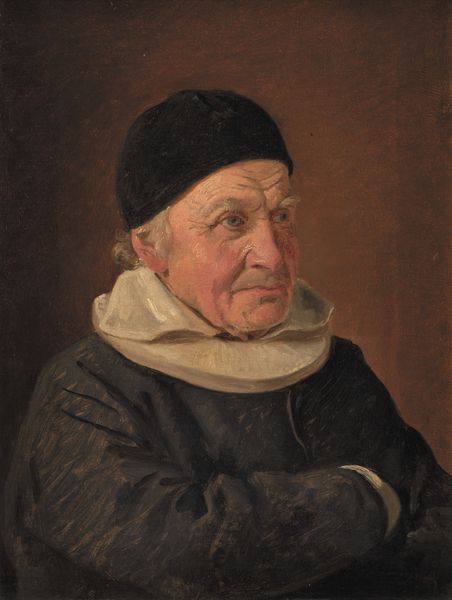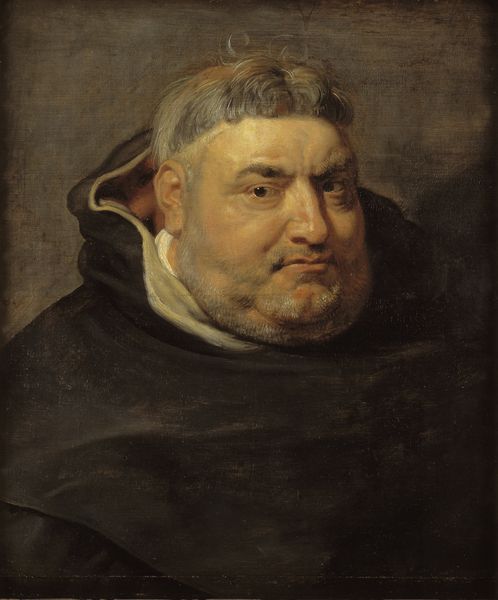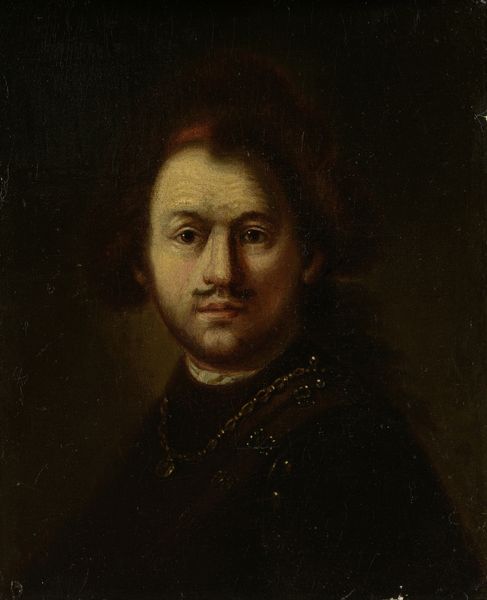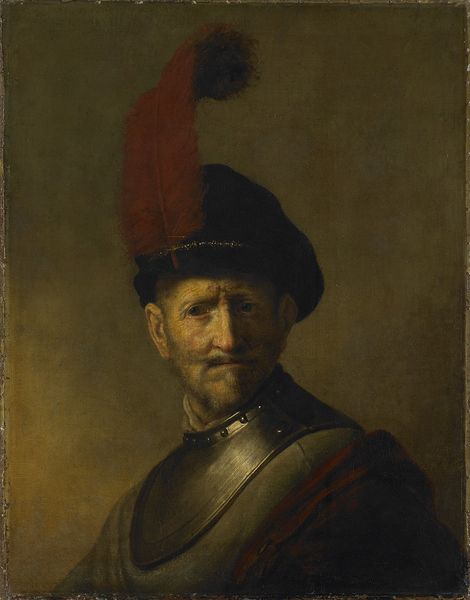
Portrait of a man, perhaps Rembrandt's father, Harmen Gerritsz van Rijn 1730 - 1774
0:00
0:00
rembrandtvanrijn
Rijksmuseum
painting, oil-paint
#
portrait
#
baroque
#
dutch-golden-age
#
painting
#
oil-paint
#
portrait drawing
Dimensions: height 18.3 cm, width 14.5 cm, depth 3.5 cm
Copyright: Rijks Museum: Open Domain
This is a portrait of a man, possibly Rembrandt’s father, made with oil on panel. The painting demonstrates the skilled application of paint, and is also an object made of humble materials that were traded commodities. Consider the texture and tone of the wood panel, which gives warmth to the painting’s dark palette. You can imagine Rembrandt carefully applying thin layers of pigment, using brushes to build up the details of the face and clothing. Oil paint allowed him to work slowly, achieving the subtle light and shadow for which he is known. Rembrandt would have ground his own pigments with a mortar and pestle, mixing them with linseed oil to achieve his desired consistency. This process was labor-intensive, requiring knowledge of materials and techniques passed down through generations of artists. While we often focus on the image itself, it’s worth remembering that the making of paintings was a business, just like any other form of production. Looking at the work in this way, we begin to appreciate it not only as an object of artistic skill but as a result of economic and social factors.
Comments
No comments
Be the first to comment and join the conversation on the ultimate creative platform.
